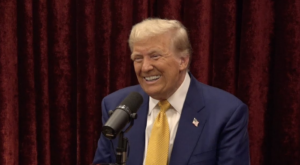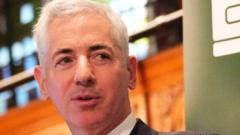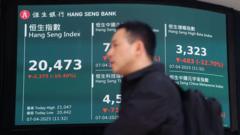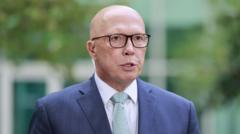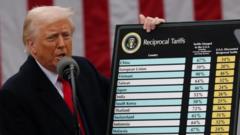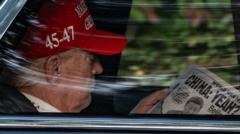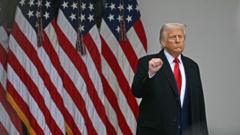Recent developments in Pierre Poilievre's campaign reveal a dramatic shift in Canadian political landscape, influenced by unexpected comments from former U.S. President Trump. Poilievre, previously leading the polls, must now navigate potential repercussions from Trump's remarks regarding Canada.
The Political Dynamics of Pierre Poilievre’s Campaign Amid Trump’s Controversial Remarks

The Political Dynamics of Pierre Poilievre’s Campaign Amid Trump’s Controversial Remarks
As Pierre Poilievre’s campaign for Canada’s prime ministerial position faces unexpected challenges, the influence of international politics highlights the interconnectedness of North American governance.
Pierre Poilievre, the Conservative Party leader standing for the premiership in Canada, was once heralded as the frontrunner, boasting a substantial polling lead of 25 points just two months ago. However, as the upcoming general election on April 28 approaches, recent comments from former U.S. President Trump have cast a shadow over his campaign. Trump's controversial threat to annex Canada appears to have eroded Poilievre's significant support, a development that reflects the intricate interplay of domestic and international political factors.
While campaigning in Ottawa, Poilievre connected warmly with local constituents, sharing personal anecdotes and demonstrating his capacity for personable engagement. Observers noted his impressive skills as a communicator, an asset that had initially buoyed his candidacy. Engaging with supporters and reflecting on his early political experiences, he sought to reinforce a narrative of authenticity and caring for the electorate.
Despite Poilievre’s innate strengths in campaigning, his path to victory is now complicated by the implications of Trump’s remarks, which may have inadvertently shifted public sentiment. Many Canadians are wary of any prospect of U.S. interference, recalling historical complexities tied to U.S.-Canada relations. Poilievre’s ability to project strength and decisiveness during this tumultuous period is critical, not only for his political future but also for the broader implications of cross-border politics.
As the election date nears, the evolving dynamics of Poilievre's campaign provide a lens through which to consider the impact of international figures on domestic elections. The intertwining of Canadian politics with American involvements continues to pose unique challenges and opportunities for political leaders navigating these uncertain waters.

